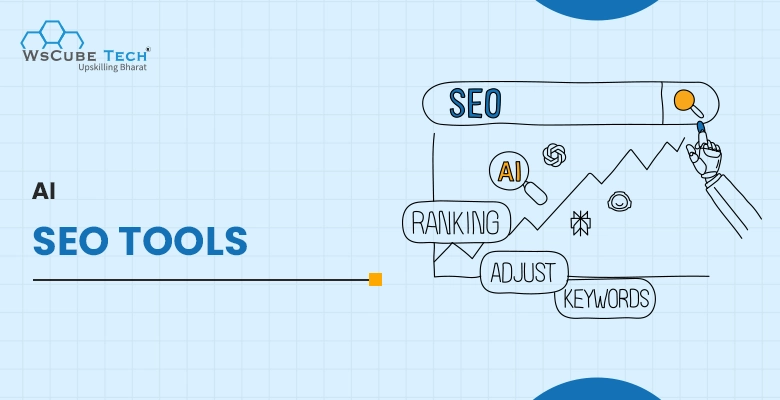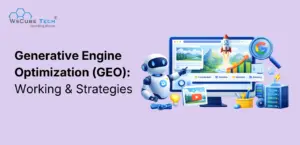If you’ve ever felt like SEO takes up too much of your time, you’re not alone. With keyword research, content creation, technical audits, keeping up with algorithm changes, and so much more to do, things can get overwhelming. That’s where AI comes in.
With the right SEO AI tools, you can speed up repetitive tasks, fine-tune your content for better performance, and even uncover insights you might have missed. From generating content ideas to analyzing competitors and boosting your rankings, these tools are like having a smart assistant by your side.
With new AI-powered platforms emerging every day, it can be challenging to determine which ones are genuinely beneficial and which merely add complexity. Additionally, not every tool may be suitable for your workflow. That’s why I’ve rounded up 15 tried-and-tested AI SEO tools that have truly made a difference for me, saving time, improving results, and helping me work smarter, not harder.
Whether you're just getting started or looking to scale your SEO strategy, these AI SEO tools are a great place to begin.
What is AI SEO?
AI SEO refers to utilizing artificial intelligence to enhance your website’s search engine performance. Instead of manually tweaking content or endlessly analyzing data, AI tools help automate and enhance different SEO tasks.
AI-powered tools can assess your content, understand how it’s performing, and suggest ways to improve it, such as adding more relevant keywords, resolving technical issues, or even revising sections to make it more engaging.
These tools use machine learning and data analysis to spot patterns and opportunities you might not see on your own. From optimizing blog posts and landing pages to tracking backlinks and analyzing competitors, AI gives you an extra edge to boost your rankings without burning out.
Best AI SEO Tools
Here’s a breakdown of the top SEO AI tools that can seriously upgrade your SEO game, whether you’re a blogger, marketer, or running a business.
- AlliAI
- Jasper
- ChatGPT
- NeuronWriter
- Outranking
- Perplexity AI
- Yext
- INK SEO
- Quillbot
- MarketMuse
Recommended Professional Certificates
Digital Marketing Mentorship Program
Advanced AI Marketing Bootcamp
Performance Marketing Bootcamp
SEO Specialist Bootcamp
1. AlliAI
AlliAI is an advanced on-page SEO automation tool that allows users to make instant changes to websites without any coding knowledge. It’s especially useful for larger sites or agencies that need to implement SEO updates at scale across hundreds of pages.
Key Features
- One-click optimization across entire domains
- Visual live editor to tweak content directly on your site
- Automated internal linking suggestions to strengthen SEO structure
- Bulk editing of titles, meta descriptions, and headers
- Integrates easily with Shopify, WordPress, and Webflow
- Ideal for SEOs managing multiple clients or large websites
2. Jasper (formerly Jarvis)
Jasper is one of the most popular AI-powered SEO tools designed for marketers, agencies, and writers. It helps produce SEO-optimized blog posts, emails, product descriptions, and more, all with speed and consistency.
Key Features:
- 50+ templates for various content types (blogs, ads, emails, etc.)
- SEO mode powered by Surfer SEO for keyword-rich writing
- Custom tone and brand voice settings for personalized content
- Command-based writing to generate content from prompts
- Excellent for scaling content production across multiple platforms
- Multilingual support makes it global marketing-ready
3. ChatGPT
ChatGPT, developed by OpenAI, is a multi-purpose AI assistant widely used for content generation, keyword ideation, content rewriting, and more. It’s flexible enough to handle almost any SEO task you throw at it — from simple queries to complex content strategies.
Key Features:
- Conversational content creation with custom prompts
- Helps with keyword clustering, FAQs, titles, and outlines
- Generates long-form blog posts, social captions, and ad copy
- Assists in brainstorming new content ideas based on trends
- Ideal for quick drafts, rewrites, and SEO-focused writing workflows
- Continuously improving with plugins and integrations (in Pro version)
4. NeuronWriter
NeuronWriter is a semantic SEO writing tool designed to create in-depth, optimized articles based on real-time SERP data. It analyzes top-performing competitors and helps you align your content with what Google loves.
Key Features:
- Uses NLP and semantic models to recommend relevant keywords
- Provides a live content score to guide SEO performance
- SERP and competitor analysis to benchmark your content
- Internal linking and keyword density tracking
- Supports writing in multiple languages and markets
- Excellent for in-depth articles, service pages, and blog content
No Masterclass found!
5. Outranking
Outranking is a smart content strategy and writing platform that merges SEO data with AI to help you create well-structured, rank-worthy content faster. It’s built for content teams looking to streamline their entire content lifecycle.
Key Features:
- AI-generated content outlines based on SERP analysis
- In-depth keyword research and content scoring tools
- Paragraph-level writing assistance with SEO guidance
- Built-in workflow features for teams and content planning
- Great for agencies, large blogs, and collaborative content projects
- Reduces manual research and improves writing accuracy
6. Perplexity AI
Perplexity AI is an AI search and research tool that gives quick, reliable answers to queries with sourced citations. It’s incredibly useful during content planning, fact-checking, and building informative SEO content.
Key Features:
- Instant answers with sources linked directly
- AI-driven summaries of complex topics or questions
- Helpful for generating FAQs, outlines, and stats-backed content
- Constantly updated with real-time data and trends
- Supports content writers with research and ideation
- Adds credibility and depth to your content without manual Googling

7. Yext
Yext is a powerful AI-driven SEO and digital marketing tool built for businesses with multiple locations. Acting as a centralized hub, it allows you to update details like business hours, services, and addresses in one place and automatically sync them across 200+ platforms, directories, and maps. With AI-powered capabilities, Yext excels in local SEO and voice search optimization, ensuring your business ranks higher in “near me” searches and maintains accurate online visibility.
Key Features:
- Centralized brand information updates across platforms
- AI-powered local SEO and voice search optimization
- Automatic syncing with 200+ directories and maps
- Review monitoring and management
- Real-time analytics and performance tracking
8. INK
INK is an all-in-one writing and SEO assistant designed to help you create engaging, optimized content with ease. It’s user-friendly and ideal for small businesses, bloggers, or anyone seeking improved rankings with minimal effort.
Key Features:
- SEO optimization score with live feedback and suggestions
- Built-in grammar, spelling, and tone adjustment tools
- AI-powered content generation with brand voice settings
- Includes a plagiarism checker to ensure original writing
- Supports content repurposing for ads, email, and web copy
- Focused on increasing organic visibility and engagement
9. Quillbot
Quillbot is a trusted paraphrasing and grammar tool widely used by content creators to rephrase content, enhance clarity, and prevent duplication. It’s a great add-on for refreshing outdated SEO content or repurposing existing material.
Key Features:
- Multiple paraphrasing styles (Creative, Fluency, Formal, etc.)
- Grammar checker, summarizer, and citation tool built in
- Ideal for rewriting meta descriptions, intros, and long-form content
- Helps with avoiding plagiarism while keeping the original intent
- Simple interface with integrations like MS Word and Google Docs
- Boosts productivity by simplifying editing and rewording tasks
10. MarketMuse
MarketMuse is a comprehensive content intelligence platform designed to build topical authority and plan content that outranks the competition. It’s great for brands aiming to dominate SERPs with quality and depth.
Key Features:
- AI-driven content briefs based on competitor and SERP analysis
- Content gap identification to uncover missed opportunities
- Optimizes for coverage, structure, and keyword usage
- Offers a content score to track readiness for publishing
- Helps prioritize which topics to write next based on ROI potential
- Best suited for publishers, SaaS blogs, and content-driven businesses
Essential SEO Topics You Should Know
Tips to Use AI SEO Tools Effectively
AI tools for SEO can transform your workflow, but only when used wisely. Here are a few tips to get the most out of these tools:
1. Start With Clear Goals
Before diving in, know what you’re trying to achieve- are you optimizing existing content, creating new blog posts, or improving technical SEO? Having a clear goal helps you pick the right tool and get better results.
2. Don’t Rely on AI Alone
AI is powerful, but it’s not perfect. Always review, fact-check, and fine-tune the content it generates. Use AI as your assistant, not a replacement.
3. Customize Your Prompts
For tools like ChatGPT and Jasper, writing specific prompts (e.g., “Write a blog intro about eco-friendly home design using the keyword ‘green interiors’”) will generate far better results than vague instructions.
4. Combine Tools for Better Output
You don’t have to stick to one tool. Use ChatGPT for brainstorming, NeuronWriter for optimization, and Quillbot for rewriting, mixing and matching, which often leads to the best content.
5. Keep SEO Fundamentals in Mind
AI can suggest great ideas, but make sure you're still following core SEO practices- keyword placement, internal linking, meta tags, and good UX still matter.
6. Analyze and Track Performance
Use AI-powered reports and dashboards to measure what’s working. Track rankings, bounce rates, and click-through rates to continuously improve your strategy.
7. Stay Updated With Tool Features
AI tools evolve quickly. Check for new updates, features, or integrations, as they can give you an edge over competitors who are using outdated methods.
Key Features of AI SEO Tools
Here’s what makes AI SEO tools so powerful:
Automated Keyword Research
AI tools can find high-potential keywords in minutes by analyzing search trends, competition, and user intent, saving you hours of manual work.
Content Optimization Suggestions
Using AI tools for SEO enables you to review your content in real-time and recommend changes to enhance your SEO score, readability, and engagement. For example, tweaking headlines, using more effective keywords, or shortening long paragraphs.
Competitor Analysis
Get detailed insights into what your competitors are doing right, including their top-ranking content, backlink strategies, and keyword usage.
Backlink Monitoring & Suggestions
AI can track your backlink profile, spot broken links, and even suggest high-authority websites for outreach.
On-Page SEO Audits
Many tools scan your pages for common issues, such as missing meta tags, slow load speeds, or mobile usability problems, and provide you with exact instructions on how to fix them.
Content Generation
Some tools help create high-quality, SEO-friendly content based on a topic or keyword you provide, helping you publish faster and more frequently.
Search Intent Analysis
Understanding what users are looking for is key. AI tools can analyze search intent and help align your content to meet those needs more effectively.
Performance Tracking & Reporting
Most tools offer dashboards or reports that allow you to track improvements, monitor rankings, and measure ROI, all in one place.

FAQs About AI SEO Tools
Many AI SEO tools are designed with user-friendly interfaces and step-by-step guidance. Tools like RankIQ, INK, and Jasper are especially great for beginners.
No tool can guarantee #1 rankings. AI tools help improve your chances by optimizing content and strategy, but success also depends on competition, content quality, and consistency.
Examine your goals, such as content creation, keyword research, audits, or analysis, and select tools that excel in those areas. Also, consider ease of use, pricing, and support.
Yes, as long as the content is original, valuable, and aligned with user intent. Always edit and humanize AI-generated content before publishing.
ChatGPT is a general-purpose AI chatbot that can assist in SEO, while Surfer, NeuronWriter, and similar tools are built specifically to analyze SERPs and guide optimization.
While AI can handle many tasks, having an expert helps ensure your overall strategy is aligned, competitive, and adaptable, especially in complex niches.
Yes. Many tools analyze conversational search patterns and long-tail keywords, which are key for voice SEO. Tools like Jasper and ChatGPT can also help write natural-sounding content.
Conclusion
AI SEO tools are changing the way we optimize websites, making processes faster, smarter, and more efficient. Whether you're a blogger aiming for better visibility or a marketer managing multiple campaigns, the right AI tools can help you save hours of work and boost your results.
But remember, the real magic happens when AI is used thoughtfully, guided by strategy, creativity, and a human touch. Explore, experiment, and find the mix of tools that works best for your workflow. As SEO continues to evolve, AI can be your competitive edge if you know how to use it right.
Explore Our Free Courses





Leave a comment
Your email address will not be published. Required fields are marked *Comments (0)
No comments yet.